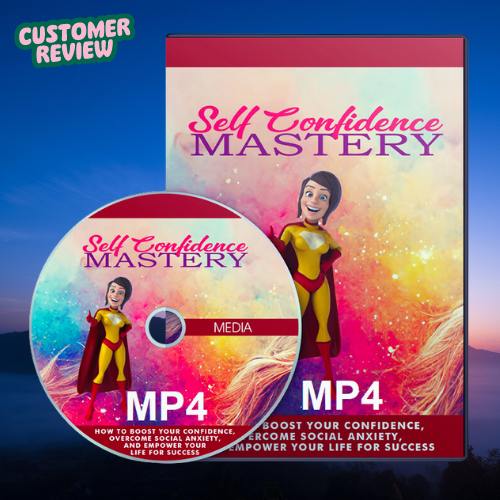What is Mindful Listening?
Mindful listening isn’t just about staying quiet while someone else talks. It’s about giving your complete attention — your mind, body, and emotions — to the speaker. It’s tuning in, not just hearing words, but absorbing the message behind them.
Why Does Mindful Listening Matter?
We live in a world buzzing with distractions — phones, emails, notifications, even our thoughts. Amid this chaos, real connection suffers. Mindful listening bridges that gap. It creates stronger relationships, improves understanding, and makes people feel valued. And let’s be honest — who doesn’t want to feel heard?
💬 The Common Misconceptions About Listening
Hearing vs. Listening
Let’s get this straight: hearing is passive. It just happens. Listening, though — that’s active. It’s a conscious choice. Most people think they’re good listeners just because they don’t interrupt. But passive silence isn’t engagement.
Multitasking While Listening
No, you’re not a great multitasker — especially when it comes to listening. Replying to an email while “listening” to your colleague? That’s a recipe for misunderstandings. Your brain simply can’t give equal focus to both.
Preparing to Respond Instead of Understanding
Many people listen with one ear and mentally draft their response with the other. This habit kills connection. You’re not really listening; you’re just waiting your turn to speak.
Interrupting to Make a Point
Jumping in before someone finishes is often disguised as enthusiasm or “adding value.” Truth is, it shows impatience and makes the speaker feel dismissed.

🔬 The Science Behind Mindful Listening
Cognitive Load and Attention Span
Our brains process around 50,000–70,000 thoughts per day. That’s a lot of mental clutter. Mindful listening reduces cognitive overload by focusing attention, allowing for clearer understanding.
Psychological Impact of Being Truly Heard
Studies show that feeling heard activates the brain’s reward centers — similar to receiving money or food. It’s validation at a neurological level.
🌱 Key Principles of Mindful Listening
- Full Presence in the Moment: Put down your phone. Turn away from your screen. Look them in the eye. Being physically present is just the start — your mind needs to be there too.
- Non-Judgmental Awareness: Let go of labeling, fixing, or jumping to conclusions. Just observe the words, tone, and body language. Listen like you’re curious, not critical.
- Emotional Intelligence and Empathy: You’re not just hearing words — you’re decoding emotions. Empathy helps you grasp the feelings beneath the message.
- Recognizing Verbal and Non-Verbal Cues: A pause, a sigh, a shift in tone — these cues often reveal more than spoken words. Pay attention.
🚧 Barriers to Effective Listening
Internal Distractions
Thinking about what’s for dinner? That email you forgot to send? Internal chatter hijacks attention. Recognizing it is the first step to re-centering.
External Distractions
Noise, tech, people talking nearby — these chip away at focus. Create a listening space that minimizes these.
Bias and Preconceptions
We all have filters — based on past experiences, beliefs, assumptions. The problem? They distort what we hear. Mindful listening requires putting those filters aside.
🔧 How to Fix Your Listening Habits
Practice Active Listening Techniques
- Maintain Eye Contact: It signals attention and builds trust. But don’t overdo it — you’re not in a staring contest.
- Use Reflective Statements: Repeat back what you hear: “So what I’m hearing is…” It shows engagement and clears confusion.
- Ask Clarifying Questions: Not sure what they mean? Ask. It’s better than assuming and missing the point entirely.
- Create an Environment for Listening: Eliminate background noise. Mute notifications. Turn off distractions. A quiet mind starts in a quiet space.
- Develop Self-Awareness Through Meditation: Mindfulness practices like meditation train your brain to notice when attention drifts — and gently bring it back.

✅ Best 3 of BuySmart Advices

🎧 Self Confidence Mastery
Self Confidence Mastery is a practical system to help you grow confident, step by step. It teaches you how to speak, act, and think with clarity. You’ll learn simple habits that make a big change. From videos to audio lessons, the bundle covers every learning style. It helps you reduce anxiety, speak up in groups, and lead others. It even includes advice on dressing right, standing tall, and building mental strength.

🎵 SpryFuel Program
Spryfuel® Membership is a sound frequency-based therapy platform offering over 750 programs designed to improve mental clarity, reduce stress, and enhance physical health. This simple-to-use, scientifically proven system requires just 10 minutes of your time each day, making it ideal for anyone looking to improve their overall well-being. Whether you’re seeking better sleep, reduced anxiety, or increased energy, Spryfuel® provides a natural solution to achieve your goals.

🎧 The Genius Wave
The Genius Wave Program is a brainwave entrainment solution designed to enhance creativity, focus, and cognitive function. Created by neuroscience experts, it uses sound frequencies to stimulate the brain, improving memory, problem-solving skills, and mental clarity. The easy-to-use audio track is available for immediate download, offering quick benefits for students, professionals, and creatives.
🎯 Benefits of Mindful Listening
Better Relationships
When you truly listen, people feel safe, seen, and respected. That deepens bonds, whether it’s with a partner, friend, or co-worker.
Enhanced Leadership and Teamwork
Great leaders are great listeners. Teams thrive when every member feels heard. Conflicts drop, ideas flourish, and collaboration improves.
Personal Growth and Clarity
Mindful listening sharpens self-awareness. You become more attuned to others and yourself — a double win.
🧾 Conclusion
Most people believe listening comes naturally. But in truth, mindful listening is an intentional skill—one built on presence, empathy, and focused attention. It’s not just about hearing words; it’s about understanding meaning, emotion, and intent. And yes, it takes practice. But the payoff is powerful. Stronger relationships. Fewer misunderstandings. Deeper trust.
Whether you’re at work, home, or in social settings, your ability to truly listen can transform conversations—and even lives. In a world filled with noise, those who listen mindfully stand out. It’s more than a soft skill. It’s a human connection superpower. And the best part? It’s one you can start mastering today, one conversation at a time.
❓ FAQs (Frequently Asked Ques)
Active listening involves techniques like nodding, reflecting, and clarifying. Mindful listening adds the element of being fully present without judgment — it’s deeper and more intentional.
Absolutely. When people feel heard without interruption or criticism, they’re more open to compromise and resolution.
Start by giving colleagues your undivided attention. Use eye contact, avoid multitasking, and ask thoughtful questions.
Yes! Kids feel more secure and understood when parents listen mindfully, leading to stronger emotional bonds.
Yes — daily meditation, journaling, and simple exercises like repeating what someone just said can significantly boost listening skills.







